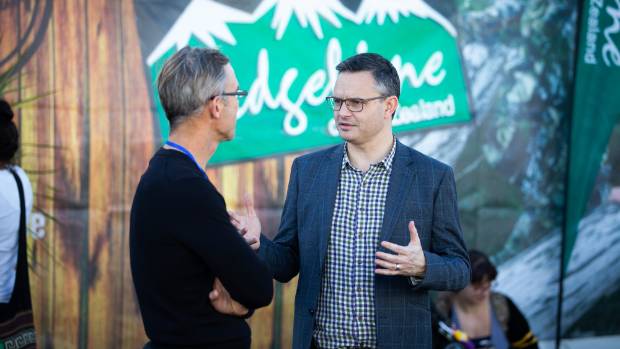HAMILTON, 19 JUNE 2018 (STUFF NZ) — Climate Change Minister James Shaw has a vision for New Zealand to become the first food producer to be emissions neutral.
If successful, it would create a hugely powerful brand in the international market for New Zealand’s primary produce as the Government looks to transition the country to a low carbon economy.
“The branding around that I think is amazing and it builds on our existing brand strength,” Shaw said at Fieldays.
“It catapults that up to the next level. If we can be the world’s first – for lack of a better phrase – net zero food producer with all of those other things then that adds value to the food product itself, but also the IP [intellectual property] and the technology you have to invent in order to do that becomes a value.”
That was the “holy grail”, Shaw said.
In the past, talks about shifting farming to lower its emissions had been put seen as too difficult. Shaw said what changed for him was when he attended a United Nations climate change conference in Bonn, Germany last year.
At that conference it became clear to him that other countries were looking to New Zealand to find a solution to agricultural emissions for them to copy.
“That’s the opportunity.”
Shaw was at Fieldays as part of the launch and public consultation of the Zero Carbon Act. He said the Government was putting a lot of effort into consultation before the bill was drafted because it was such a significant piece of legislation. That evening, he hosted a consultation meeting in Hamilton.
He previously hosted similar meetings in Whangarei and New Plymouth and so far, people had been “pretty engaged” in wanting to know more about the legislation.
“I’ve actually been quite surprised. people aren’t pushing back on the concepts.”
Instead, there was trepidation about who would fund the transition to a low carbon economy and what it would mean for the primary industry.
“All of that is understandable, but it is an engaged and constructive conversation,” he said.
Pastoral Greenhouse Gas Research Consortium general manager Mark Aspin saids there were a range of options in development to curb livestock emissions, but there was no silver bullet.
Shaw said he was comfortable with that.
“We are talking about a 30-year transition. The whole point is to create a sense of certainty of where the pathway is and to drive innovation.”
There was innovation happening and he expected that technology to become commercialised during that period.
Fuelling innovation required funding along with a lift in carbon prices, which were at $20.55 per unit. Shaw would not be drawn into what that price should be, saying it was the job of the Climate Change Commission.
There was always a presumption that agriculture would come into the Emissions Trading Scheme when the conditions were right.
“If agriculture does come in, it will come in at a 95 per cent discount,” he said.
Whether farmers would have to pay more depended on New Zealand’s trade exposure, what other countries were doing and the technology and science available.
“We are cognisant of a risk of carbon leakage – the idea that production could move to somewhere with a lower standard – and therefore actually end up producing globally more emissions and nobody wants that.”
Farmers also wanted recognition for emission mitigation for environmental improvements such as wetland development and riparian planting. Measuring that accurately and fairly was a technological and scientific challenge, he said.
“While we have some fuzziness in that system, having a 95 per cent essentially offsets that fuzziness.”
He said the settings could be changed once the science became clearer.




